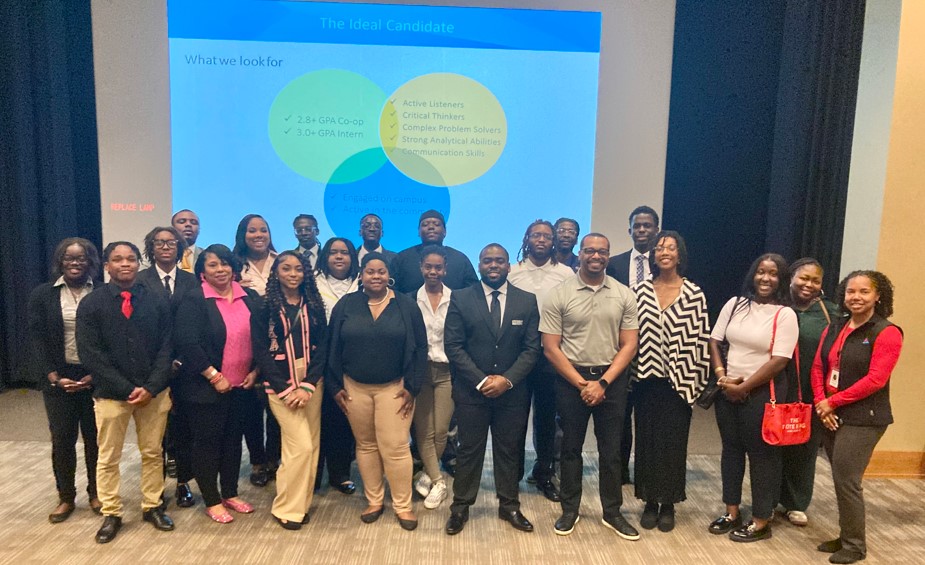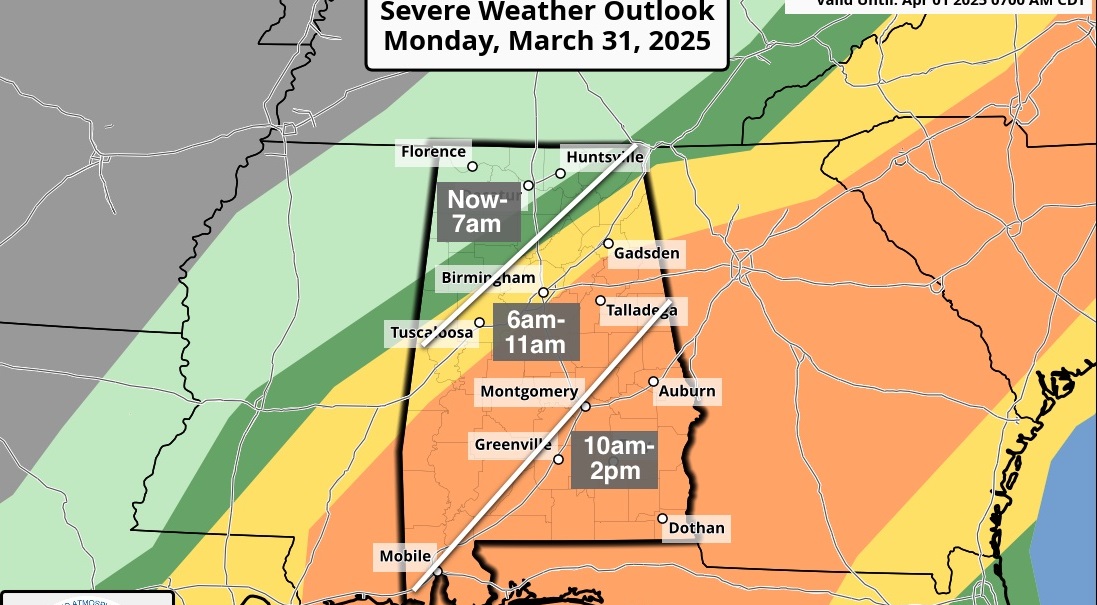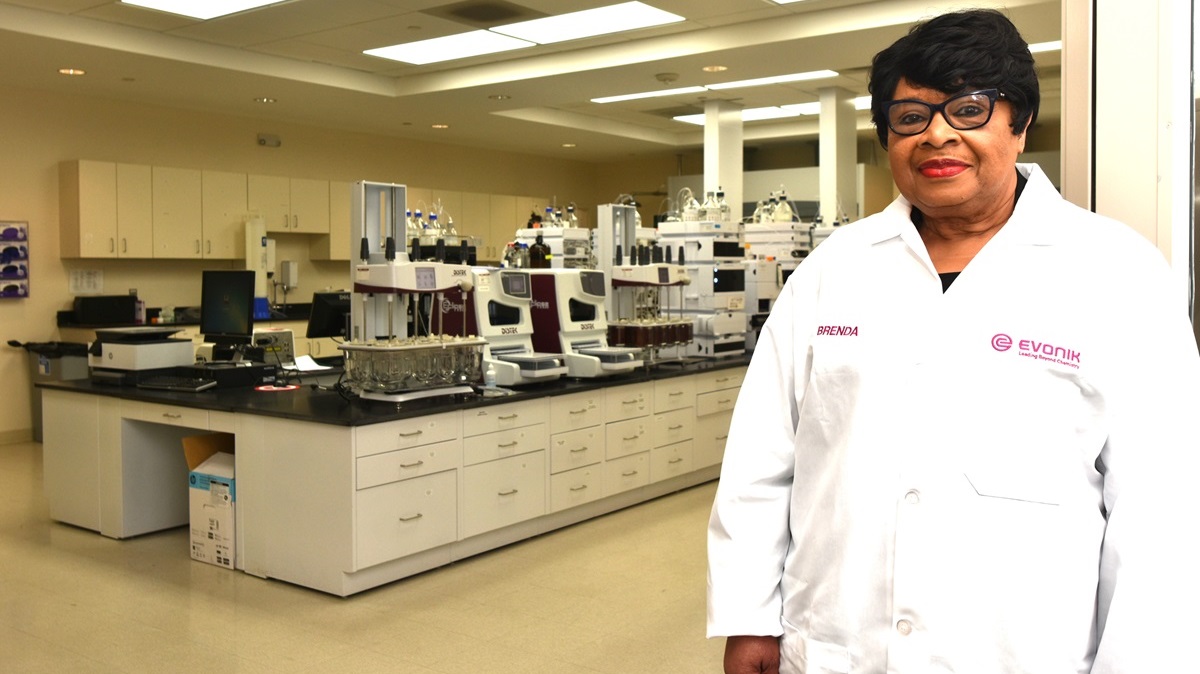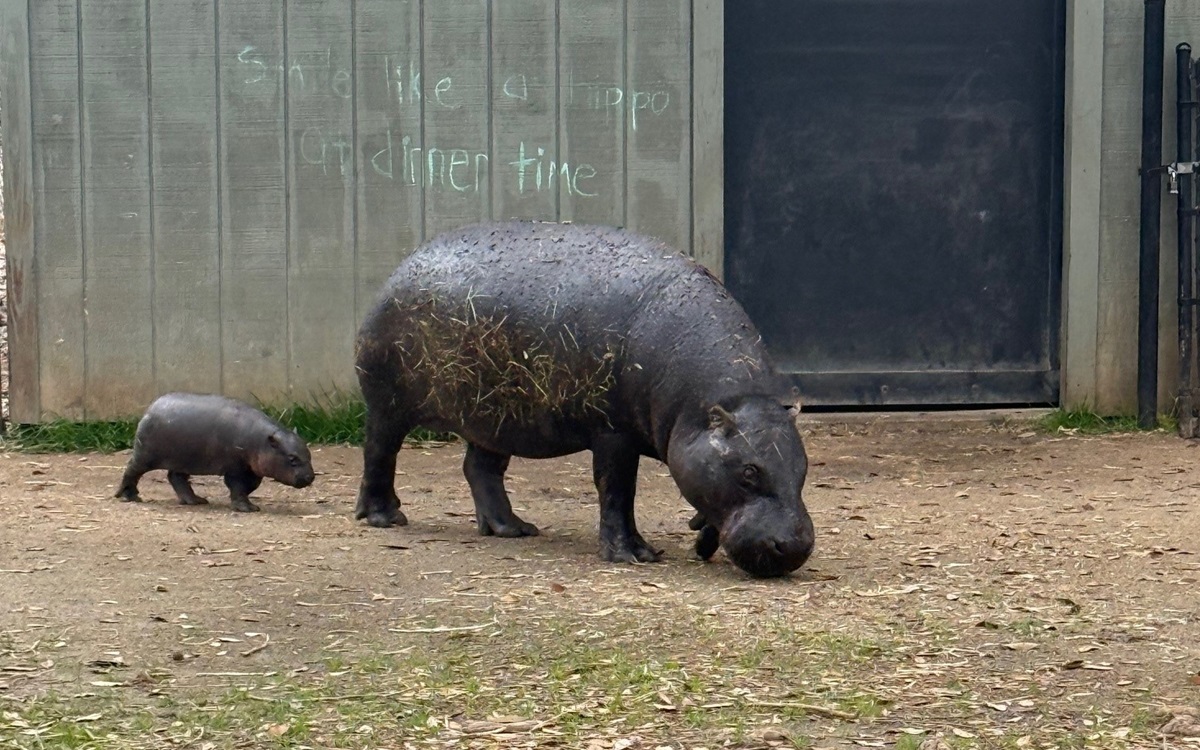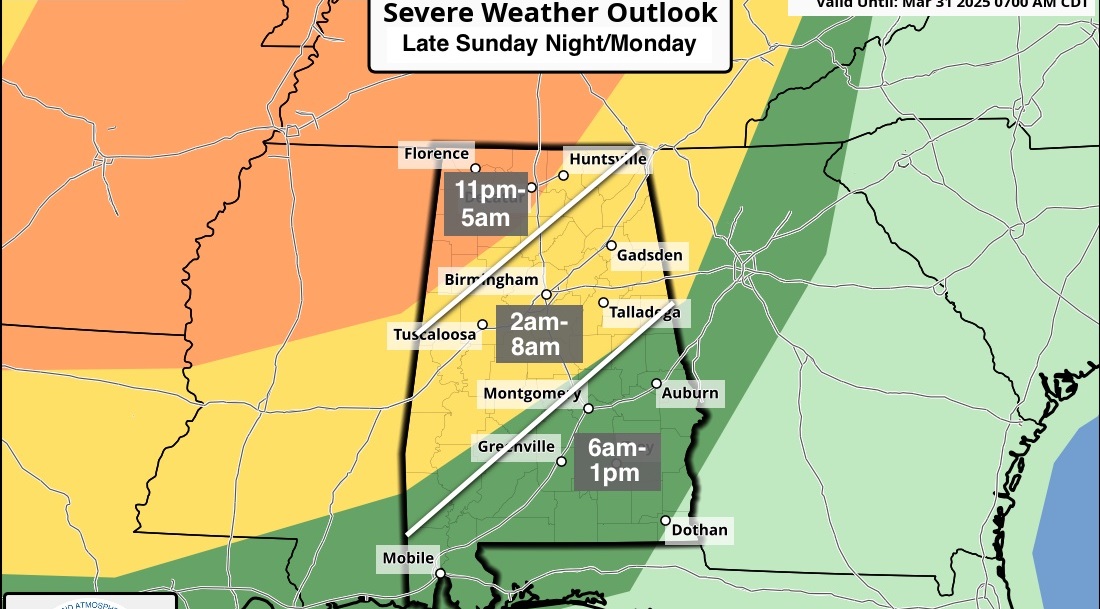Alabama’s ‘space archaeologist’ Sarah Parcak to use $1M TED Prize to save history

Sarah Parcak
Above: Sarah Parcak uses satellite imagery to protect historic sites. (UAB Media)
Sarah Parcak on winning the TED Prize from Alabama NewsCenter on Vimeo.
“Space archaeologist” Sarah Parcak cried when she heard that she had won the highly celebrated TED Prize.
It wasn’t so much that the award comes with a million dollar prize – although that would certainly be enough to elicit strong emotions. Rather, Parcak said, it was because the award was recognition of the important work that she and many of her professional associates are doing – some at tremendous risk – to protect ancient sites and save countless cultural and historical artifacts across the globe.
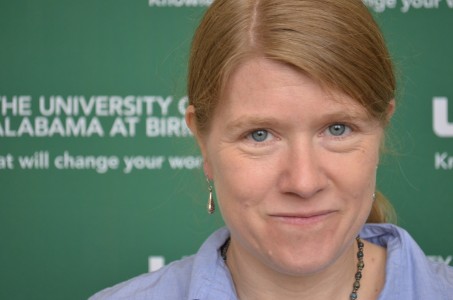
Sarah Parcak has plans for her $1 million TED Prize. (Michael Sznajderman/Alabama NewsCenter)
“I am one of many working on this,” Parcak said. “So many colleagues are risking their lives protecting sites. It’s very, very serious.”
Parcak, 36, is an associate professor of anthropology at the University of Alabama at Birmingham and director of the university’s Laboratory for Global Observation. She is the 22nd winner of the TED Prize, the prestigious honor borne from the TED Conference, a once-modest gathering of visionaries interested in sharing ideas that meld technology, entertainment and design that has grown to become an international phenomenon. She is the second winner with an Alabama connection – Harvard-based biologist and Birmingham native E.O. Wilson won the prize in 2007.
Parcak, who studied at Yale University and the University of Cambridge, has built an international reputation for utilizing ground-penetrating satellite imagery, and old-fashioned field work, to unearth long-lost, ancient sites across North Africa and Europe. Her work in Egypt alone has uncovered buried pyramids, formerly unknown tombs and literally thousands of possible settlement sites yet to be explored.
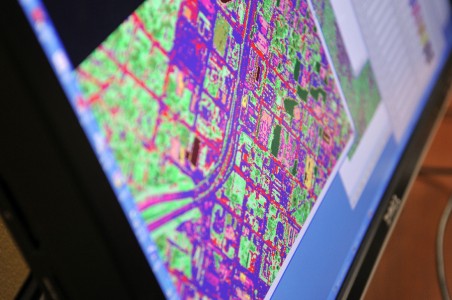
Close-up of anthropological map on computer screen in the Sarah Parcak laboratory. (UAB Media)
That technology is also being utilized now as a tool to track and discourage the ages-old problem of looting, which has increased in recent years in some Middle East nations because of the economic uncertainties following the Arab Spring of 2010. But an even greater concern is the destruction of important historical sites being carried out by the Islamic State and other extremists in Iraq, Syria and other locations.
Parcak said it’s not just ancient artifacts and historic sites that are being threatened; so are the people trying to save them. She cited the beheading earlier this year of Khaled al-Asaad, a Syrian archaeologist who spent 40 years looking after the UNESCO World Heritage site at Palmyra.
“There is a crisis in archaeology. People are literally losing their lives.” Parcak said. “I call them culture heroes.”
As a TED Prize winner, Parcak will speak at the upcoming annual TED Conference, scheduled for February in Vancouver, Canada, and streamed worldwide. There she will unveil her ideas for how everyone can join the fight to preserve global heritage. Her TED Prize winnings will go toward fulfilling her wish.
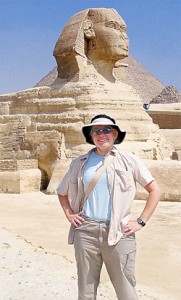
Sarah Parcak stands near the Great Sphinx in Giza, Egypt in 2007. (contributed)
Parcak has been fascinated with Egypt since childhood, but her professional specialty was inspired by her grandfather, a professor at the University of Maine who helped pioneer the use of using aerial photography to study forests.
Her love of Egypt is shared by her husband, Greg Mumford, an archaeologist and Egyptologist who also is an associate professor at UAB. The two often travel and work together.
While Parcak’s focus has often sent her far beyond the borders of Alabama, she believes satellite archaeology could also help to locate important historic sites within the state, including Mabila, the long-lost Indian village where in 1540 the forces of Spanish explorer Hernando de Soto slaughtered thousands of native warriors led by Chief Tascalusa, along with women and children. Mabila is considered one of the most important lost sites in North America.
“I think it could definitely be useful to help put us closer to finding Mabila,” Parcak said. “I think it would worth trying.”

Sarah Parcak looks at satellite imagery. (UAB Media)
Parcak’s honors and recognitions continue to accumulate – she is a National Geographic Fellow/Emerging Explorer, a TED Senior Fellow, and has appeared on CNN and in documentaries on the Discovery Channel and the BBC. But she said it is her teaching duties at UAB that really get her blood flowing.
“It’s amazing to be involved in training the next generation of satellite archaeologists,” she said. “I learn from my students every day.”
She said she hopes the TED Prize will inspire more young women to get involved in pioneering research, which some still view as more a man’s world.
“It’s hard being a woman scientist,” she said. “The next generation will hopefully have it a little easier.”
Sarah Parcak’s “Archaeology from Space” TED Talk from Alabama NewsCenter on Vimeo.
